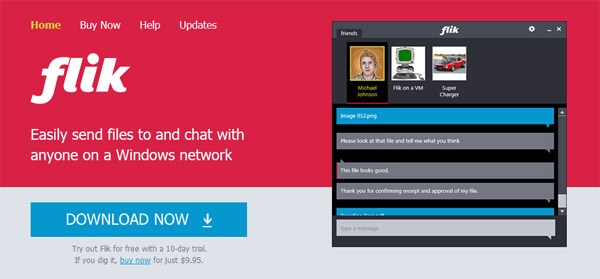Why we chose to build our core software business on the open web instead of on a closed app store platform
Subvert has made and sold a handful of our own different software products over the past few years. All have been mobile phone, tablet or tiny desktop apps.

Our first was Flik, a network chat and file sharing application for Windows desktop. Next was Cash Hound, a Windows Phone 7 cash flow management mobile app. After that came Rally Hound, another group chat and file sharing app, but this time for Apple iOS and specifically, the iPad. One more app made the Hound family complete; namely Proto Hound, a Windows Phone 8 product for prototyping apps directly on your Windows Phone device.
None of these products have made us millionaires. Several have barely made $100 in total sales, but all of them we love and have enjoyed the experience of designing, building, supporting and marketing the products. Unfortunately in the world of business, at some point, you have to question what you're doing when the product you've made is costing you magnitudes more in support and development hours than actual bill-paying, salary-covering revenues.
That's why today we're announcing that we're shutting down most of our app store products. We're going to keep our Windows Phone 8 app, Proto Hound, running but our Windows Phone 7 app, Cash Hound, will be removed from the Windows Phone Store. Our iPad app, Rally Hound, is also going to be taken off the iOS App Store. As for Flik, we removed that product from our line-up a while back (and no one seemed to notice, sigh).
In effect, what we've now got for ourselves is an app store graveyard, as illustrated by me on our office whiteboard. Never mind the Ghost of Yukono on the right; it's not applicable to this discussion because it pulls in pennies in revenue and that's okay. As a community service, Yukono was never made to make money.

We've found that building a sustainable software business in the app store world - whether it's the iOS App Store or Windows Phone Store - is really difficult.
In the closed, locked-down environment of an app store, your product's marketing is just, if not vastly more important than the app itself. Getting your app into the right hands, in front of the right reviewers and in the right way, is very time consuming and expensive.
More so, unless you have huge sales volumes, it's near impossible for a company selling $2.99 apps (our lowest cost product and a fee which, in the app store world is considered wildly exorbitant) to make enough money to support their team, pay for office space, keep up to taxes, cover fees and look after all of the financial requirements that it takes to run a real business.
Hence the main reason why we're getting out of the closed app store software business, at least for now. We may one day return, but currently, it's just not working out. Instead, we're taking a different path and returning to our roots as a web software development company. I think it's just as important to decide what not to do as it is deciding what to do.
I've not yet mentioned our fifth software product; a web-based data management software system. We've done next to zero promotion of this software-as-a-service (SaaS) product since we started building, using and supporting it two years ago. Instead, we've been slowly adding to the system, improving the platform and signing up paying customers on a regular basis. As a result, the product has been making money - real money - and long ago surpassed the combined revenues of our other commercial software applications in a big way.
With this product, we're not selling it in the closed world of platform-specific app stores. No, from the onset we made a conscious decision with our data management system software to stick to the open web and have the application run in a web browser. As a result, we have been able to free ourselves of the considerable drawbacks and restrictions of selling our product under somebody else's banner.
There's a number of positive aspects of building your core software business on the open web. If you've been in this business long enough, you likely know what they are, but for those who don't, here's the short list.
First, is that you get to control how often and how much you are paid. In the current app store financial model, you have to make a minimum amount of money before the app store owner will cut you a cheque. You're also on the hook to hand over a percentage of sales to them, as well as price your app for dirt cheap or free if you want to gain any sort of reasonable traction. On the open web, you can charge what your product is actually worth and collect recurring revenue much more easily.
Second, in the app stores we were in, if you want to issue updates and bug fixes, you have to get in line with everybody else. Sometimes the app store's review process can take weeks for your update to be approved and published, but meanwhile your customers are suffering with a bug or issue that you can't do anything about. Your reputation as a software company suffers and you'll hear about it in your app store reviews for the product. This is not the same with a web-based SaaS application; if it's got problems, you can address them right away and deliver great service to your paying customers.
Thirdly, in the app stores, if you need to change directions or tactics with your product, you have to either remove an existing product and introduce a new app (in which you inevitably get raked over the coals by your users; think of the pain that Realmac went through with Clear), keep supporting the old product or shut down the app, introduce something else and lose all of your customer sales data and records.
This is not the same on the open web, where if you need to change directions or tactics, you can simply add a new feature, enhance the others, keep the sales data and roll it all out to customers. You may get some negative feedback on this, but at least the transition can be a gradual process in which you bring people over and get them used to the revised system. You can also be a lot more personal and customized in your customer response.
Fourth, and finally, building and selling software on the open web means that you have total control over how your product is sold and distributed. We've read about developers who have had their app store accounts locked down and removed because of a decision by a random app store platform employee. That's pretty scary stuff and a financial situation that we, and other businesses would obviously like to avoid.
Today, the app store software model is hip, trendy and sexy. Consumers understand it and they obviously like it for their free and/or 99 cent apps. But as designers, developers and business owners, the open web can still offer a much smarter, more sustainable and more secure way of making money and building something of lasting value for you and your customers.